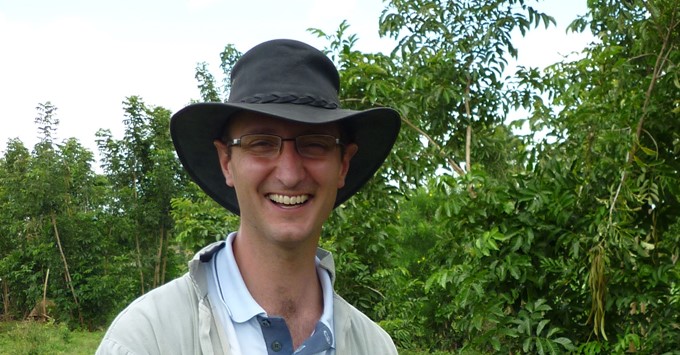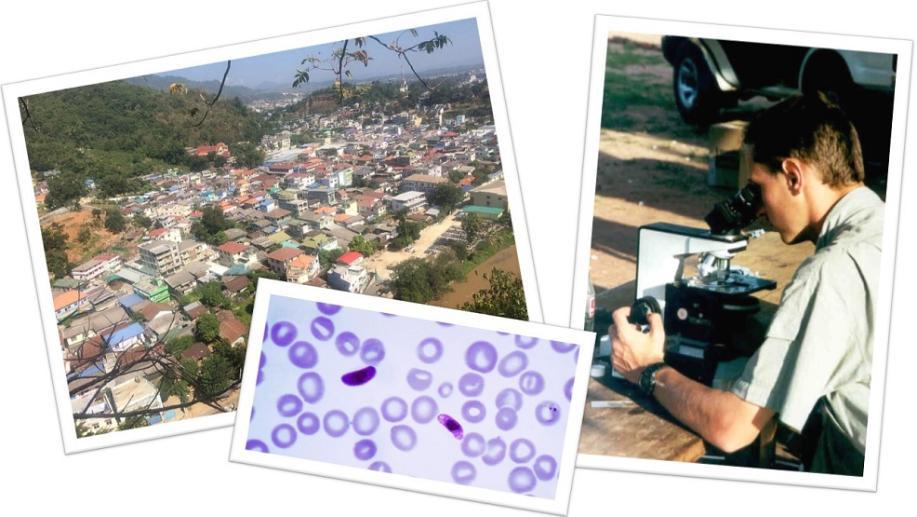My First Paper: Eric Fevre
Posted on: 27 October 2022 by Eric Fevre in October 2022 posts

We continue our 'My First Paper' Campaign, showcasing researchers and their research - with Eric Fevre, a Professor Veterinary in Infectious Diseases from IVES.
Your name and your area of research.
Eric Fevre, epidemiology and control of emerging infectious diseases.
What was the title of your first paper and who was it submitted to?
The title of the paper was "Sensitivity in vitro of Plasmodium falciparum to three currently used antimalarial drugs on the western border of Thailand". It was submitted to Transactions of The Royal Society of Tropical Medicine and Hygiene. Read the paper here. The paper was the result of my Master's thesis at the Liverpool School of Tropical Medicine.
How would you explain what this paper was about to your grandparents?
Malaria is serious and sometimes fatal tropical disease caused by a parasite that is carried by a certain type of mosquito which feeds on humans. In the 1990s, a new malaria drug called Artemisinin became the most important part of anti-malarial treatment in southeast Asia, particularly along the Thailand-Cambodia and Thailand-Myanmar border areas, which are the hotbeds for resistance to antimalarial drugs.
The ability of the drug to kill the parasite could be assessed either by:
a) treating the patients with the new drug and measuring how quickly the disease is cleared or
b) by measuring the ability of the parasite to survive after exposure to the drug in blood samples from infected patients in the lab.
We used the second method to quantify how the survival of the parasite in the blood samples in the lab after addition of the new drug, Artemisinin as compared to two other commonly used treatments for malaria.

Thailand-Cambodia and Thailand-Myanmar border the western border of Thailand, Southeast Asia, the malaria' parasite Plasmodium falciparum in infected blood samples under the microscope and Eric studying samples during field study in Thailand.
What was the most significant thing for you about that paper?
It was a very small step for science overall but a big step for me, and publishing this really helped when I was applying for PhDs.
What advice would you give to others about submitting their first paper?
As my co-author and then mentor once said, “If you haven’t published it, you haven’t done it!” So, my advice to others doing what might seem like small projects is to do them as well as you can and always write them up.
Prof Fevre leads a team of epidemiologists, biologists, veterinarians and medical practitioners interested in the biology and control of (re-)emerging diseases, particularly zoonoses, with a focus on understanding the factors involved in emergence, risk, transmission, persistence, spread, and disease burden of pathogens in both human and animal populations. For more information go to: http://www.zoonotic-diseases.org/ and on Twitter on @zoonoticdisease.
If you would like to be part of the #MyFirstPaper campaign (one of the most popular features on the Faculty website), the HLS comms team would love to hear from you. The information we’d require from you is:
- Your name and your area of research (please identify any web links you’d like us to use)
- What was the title of your first paper and who was it submitted to?
- How would you explain what this paper was about to your grandparents?
- What was the most significant thing for you about that paper?
- What advice would you give to others about submitting their first paper?
Please supply photos of yourself (and any other relevant pictures), plus a link to the paper if possible. Please send all information to hlscomms@liverpool.ac.uk
Keywords: My First Paper, Infectious Diseases, Malaria, Drug Resistance.